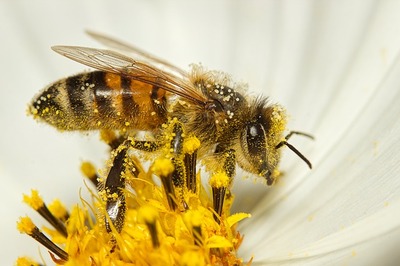DNR Receives Grant to Help with Pollinator Habitats
Wednesday, June 21st, 2023 -- 8:00 AM

(By Gaby Vinick, Wisconsin Public Radio) Some of the most important sources of the global food supply, pollinators, are in decline, but work is underway in Wisconsin that could reverse that trend, according to Gaby Vinick with Wisconsin Public Radio.
"We're losing species from different parts of the range in the state, and eventually if we lose enough of them, they're going to disappear," said Jay Watson, a conservation biologist with the state Department of Natural Resources. "These are pollinating our native plants and also our foods that we eat."
"That's the most concerning to me, is you start losing this whole ecological service that gets broken down and has a trickle-down effect," he continued. Pollinators include bees, butterflies, moths, beetles, wasps and hummingbirds, among others.
They transfer pollen from one flower to another, which allows plants to reproduce. In Wisconsin, there are about 400 bee species, with about 3,600 in the U.S. and 20,000 around the world, according to the 2016 DATCP Wisconsin Pollinator Protection Plan.
Globally, about 75 percent of flowering plants depend on animals for pollination, according to the U.S. Department of Agriculture. That affects an estimated one out of every three bites of food humans eat.
Watson pointed to a number of causes driving a decrease in some pollinator populations, including habitat degradation and extreme weather conditions. Those could range from dry spells that cause a reduction in some plants' blooming period to flooding events.
In 2022, the monarch butterfly was classified endangered species by the International Union for Conservation of Nature. Butterflies that depend on prairies or grasslands are showing the biggest decline in the butterfly group, Watson said.
Watson said it's been difficult to collect some information on other species. "We do not have funding to survey statewide. We're doing the best with what we have," Watson said. The state agency also doesn't have dedicated funding to protect pollinator habitat.
But the DNR announced Monday it's receiving $35,000 in new funding from the Natural Resources Foundation of Wisconsin, a nonprofit. Those dollars will go toward increasing pollinator habitat at seven state parks, as part of the 'Pollinator in the Parks' program, which began in 2021.
Feel free to contact us with questions and/or comments.




